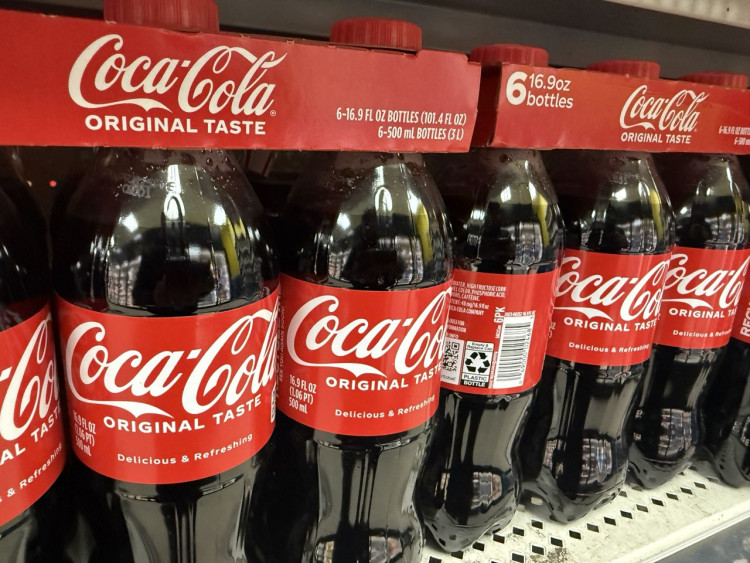The Coca-Cola Company posted stronger-than-expected second-quarter earnings Tuesday, driven by resilient European demand and pricing power, even as global sales volume slipped and overall revenue narrowly missed analyst targets.
The beverage giant reported adjusted earnings per share of $0.87, beating Wall Street's estimate of $0.83, according to LSEG. Net income attributable to shareholders climbed to $3.81 billion, or $0.88 per share, from $2.41 billion, or $0.56, a year earlier. Revenue rose 1% to $12.54 billion, just below the consensus forecast compiled by Visible Alpha, while adjusted revenue reached $12.62 billion.
Organic revenue, which excludes currency fluctuations and structural changes, rose 5% year-over-year. However, global unit case volume-an indicator of consumer demand-fell 1%, weighed down by declines in every region except Europe, the Middle East, and Africa (EMEA), where volume grew 3%.
"Several markets that were weaker in the first quarter improved volumes sequentially, including the U.S. and Europe," CEO James Quincey told analysts on the company's earnings call. "In these markets, the plans we've implemented are working, providing further confidence we can influence the trajectory of our results."
North America volume dropped 1%, driven by softer demand for the namesake cola. Latin America fell 2%, and the Asia-Pacific region slid 3%. The company's juice, dairy, and plant-based beverages fell 4%, while its water, sports, coffee, and tea segment posted flat results.
Sales were notably affected in Hispanic communities in the U.S. during the spring, following a viral rumor falsely claiming Coca-Cola had reported undocumented workers to immigration authorities. "I think we've kind of put that one behind us, for now," Quincey said.
To rejuvenate its core soda brand, Coca-Cola announced plans to launch a U.S. version of its flagship cola made with cane sugar this fall. The initiative, it said, will "expand its Trademark Coca-Cola product range" and offer more options in line with shifting consumer preferences. The move comes after President Donald Trump said the company had agreed to reduce high fructose corn syrup usage in its products, in line with the administration's broader effort to push food manufacturers away from artificial additives.
While the company continues to assess a "manageable" tariff impact, analysts have warned that imported ingredients such as fruit juice concentrates and aluminum remain vulnerable. Rival PepsiCo, which reported stronger international growth in its own quarterly report last week, has similarly flagged global economic headwinds.
Coca-Cola slightly raised its full-year outlook for comparable earnings per share growth to 3%, from the prior range of 2% to 3%. The company maintained its guidance for 2025 organic revenue growth of 5% to 6%. Shares dipped nearly 1% in early trading following the results and remain up about 13% year-to-date.




